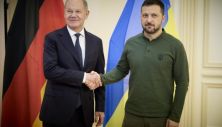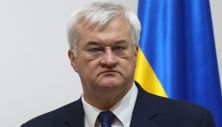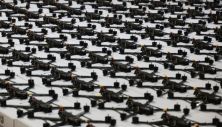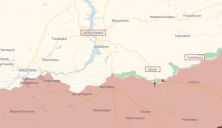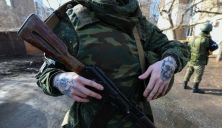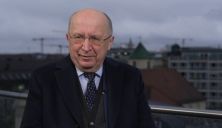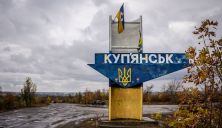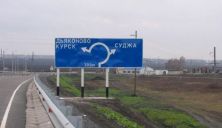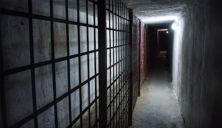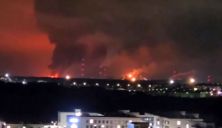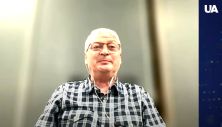As part of the NATO Joint Analysis, Training, and Education Centre (JATEC) for Ukraine, the Alliance plans to study the lessons of the war in Ukraine in the context of both military operations and Russia’s hybrid aggression.
This was reported to a Ukrinform correspondent by a source at NATO’s Headquarters in the corridors of the Alliance’s defense ministers meeting.
When asked whether the Alliance, as part of JATEC, would consider Ukraine’s experience in conventional warfare against Russia as well as in countering hybrid aggression, especially considering Russia’s ongoing campaign to destabilize European allies through subversive hybrid influence, the NATO official said: “Hybrid warfare is an important issue. Within JATEC, we will study lessons related to military matters, but also to civil, hybrid elements. We see what is happening in Ukraine on the battlefield and in society. We also see what is happening on NATO territory.”
The official emphasized that the main goal of JATEC is to contribute to collective security and deterrence.
Commenting on the situation at the front in Ukraine, the source acknowledged that it remains complex: “Both sides are adapting, trying to find ways to counter new threats on the battlefield.” At the same time, in their view, Russia continues to suffer high losses and “is unable to sustain high-intensity military operations without significant support from its allies, such as North Korea.”
Meanwhile, commenting on the role of NSATU (a structure created within NATO to strengthen the Alliance’s role in coordinating international military aid and preparing personnel and units of Ukraine’s Defense Forces), the official noted that the nature of its work would not change even if the hot phase of the war ends.
As reported, on February 13, a NATO defense ministers’ meeting is taking place in Brussels. The meeting of the NATO-Ukraine Council will be attended by Ukrainian Defense Minister Rustem Umerov.


